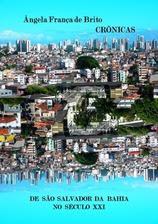Henry Purcell – biography
Born in 1659, Henry Purcell was the finest and most original
composer of his day. Though he was to live a very short life (he died in 1695)
he was able to enjoy and make full use of the renewed flowering of music after
the Restoration of the Monarchy.
As the son of a musician at Court, a chorister at the
Chapel Royal, and the holder of continuing royal appointments until his death,
Purcell worked in Westminster for three different Kings over twenty-five years.
In the Chapel Royal young Purcell studied with Dr.
John Blow. Dr. Burney, the eighteenth century historian, is amusingly skeptical
on this point: "..... he had a few lessons from Dr. Blow, which were
sufficient to cancel all the instructions he had received from other masters,
and to occasion the boast inscribed on the tomb-stone of Blow, that he had been
'Master to the famous Mr. Henry Purcell'." Legend has it that when, in
1679, Purcell succeeded Dr. Blow as organist of Westminster Abbey, the elder
musician stepped aside in recognition of the greater genius, and it is true
that on Purcell's death in 1695 Blow returned to the post, and would write a
noble Ode on the Death of Purcell.
In addition to his royal duties Purcell also devoted
much of his talent to writing operas, or rather musical dramas, and incidental
stage music; but he would also write chamber music in the form of harpsichord
suites and trio sonatas, and became involved with the growing London public
concert scene. Indeed one of the most important musical developments in
Restoration London was the gradual establishment of regular public concerts.
Even the few meetings that began as private concerns were eventually prevailed
upon to admit the general public, such as the group that gave concerts in the
Castle Tavern. Whereas other organizations charged only a shilling, their
admittance fee was more than twice that sum, and before long they had enough
capital to equip a music room in York Buildings.
By the time Henry Purcell began to attend such
concerts in the 1670s there were many highly skilled players of the violin,
cello, and flute, as well as exponents of the (for London) relatively new art
of playing continuo instruments, the most usual being the organ and the
harpsichord. In 1683 a group of gentlemen amateurs, and professional musicians
started a "Musical Society" in London to celebrate the "Festival
of St. Cecilia, a great patroness of music" which any music-lover so
desirous may still celebrate yearly on November 22nd. They asked Henry Purcell,
then only 24, to be the first to write an Ode for their festivals; Purcell was
to compose two more such Odes for the Society.
listen henry purcell in: escutem henry purcell em:
ângela frança de brito. ssa-ba, 20/12/2015



